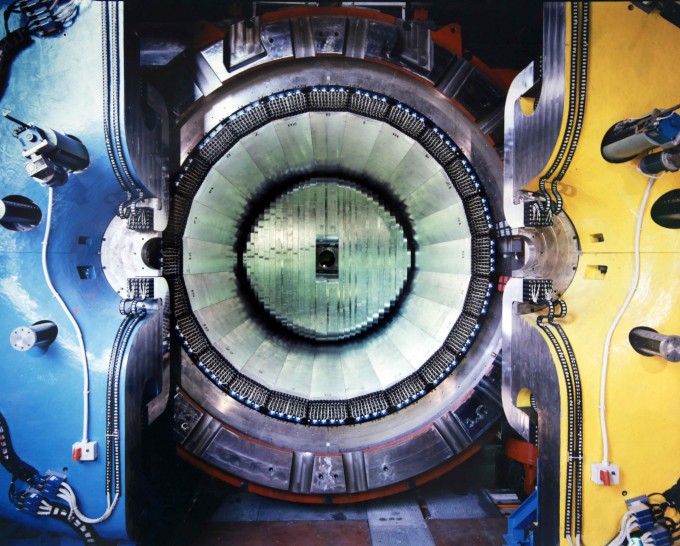 KLOE (K-Long Experiment) is an experiment at the Phi-factory DAFNE of the Frascati National Laboratory. DAFNE is an electron-positron collider designed to operate at high luminosity at 1020 MeV c.m. energy. The research program of KLOE is aimed at studying discrete symmetries in the production of entangled kaon-pair final states, the spectroscopy of light mesons, the total e+e- annihilation cross section at low energy and the search for phenomena beyond the Standard Model mediated by new interactions. KLOE has taken data in 2000-2006 for an integrated luminosity of 2.5 fb-1. Recently DAFNE has been upgraded for higher luminosity exploiting a new scheme for beam optics at the crossing point. At the same time, the KLOE detector has been upgraded by inserting a new inner tracking chamber and e+, e- tagging detectors for the measurement of gamma-gamma interactions. The experiment is financed by the INFN (National Institute for Nuclear Physics) and has been approved for a data taking period of three years beginning in 2014 for an integrated luminosity of about 10 fb-1. Beside personnel of the Frascati National Laboratory, the KLOE2 Collaboration comprises groups of the Universities of Bari, Cosenza, Cracow, Frascati, Messina, Moscow, Roma Sapienza, Roma Tor Vergata, Roma Tre, Uppsala and Warsaw.
KLOE (K-Long Experiment) is an experiment at the Phi-factory DAFNE of the Frascati National Laboratory. DAFNE is an electron-positron collider designed to operate at high luminosity at 1020 MeV c.m. energy. The research program of KLOE is aimed at studying discrete symmetries in the production of entangled kaon-pair final states, the spectroscopy of light mesons, the total e+e- annihilation cross section at low energy and the search for phenomena beyond the Standard Model mediated by new interactions. KLOE has taken data in 2000-2006 for an integrated luminosity of 2.5 fb-1. Recently DAFNE has been upgraded for higher luminosity exploiting a new scheme for beam optics at the crossing point. At the same time, the KLOE detector has been upgraded by inserting a new inner tracking chamber and e+, e- tagging detectors for the measurement of gamma-gamma interactions. The experiment is financed by the INFN (National Institute for Nuclear Physics) and has been approved for a data taking period of three years beginning in 2014 for an integrated luminosity of about 10 fb-1. Beside personnel of the Frascati National Laboratory, the KLOE2 Collaboration comprises groups of the Universities of Bari, Cosenza, Cracow, Frascati, Messina, Moscow, Roma Sapienza, Roma Tor Vergata, Roma Tre, Uppsala and Warsaw.
Roma Tre team involved on this exeriment:
Paolo Branchini – Antonio Budano – Filippo Ceradini – Veronica De Leo – Biagio Di Micco – Alessandro Di Cicco – Enrico Graziani – Salvatore Loffredo – Antonio Passeri – Ludovico Tortora


